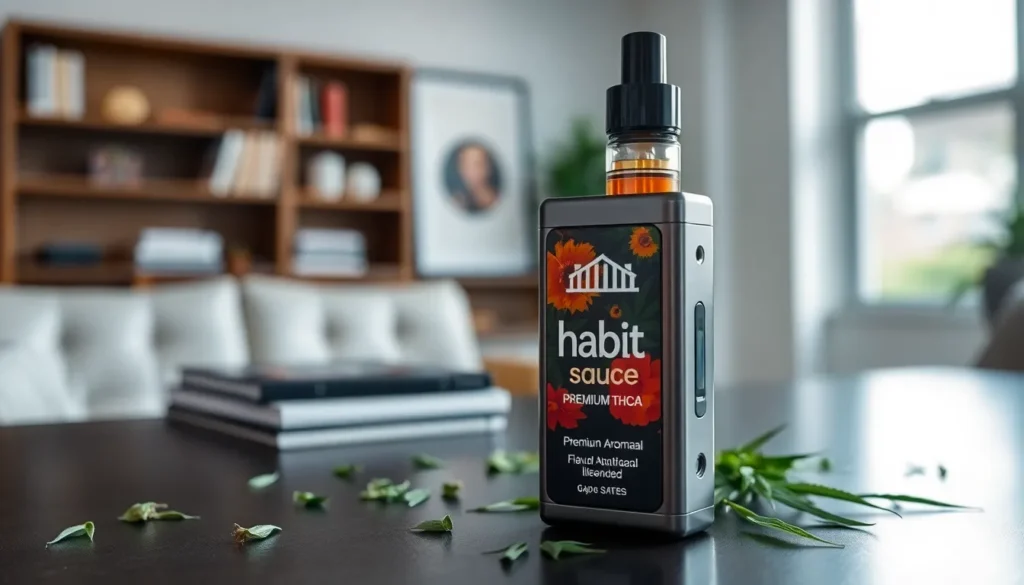In a world bustling with distractions and demanding deadlines, the concept of “fum” might sound a bit peculiar. But fear not, it’s not an obscure ritual but rather a good habit that can unleash a life full of purpose and productivity. Think of fum as that reliable friend who gently nudges you towards self-improvement while keeping you amused. So, why should one care about fum? Because integrating this practice into daily life can feel like a breath of fresh air, or should we say, a puff of positivity? Let’s jump into exactly what fum is and why it deserves a spotlight in your life.
Table of Contents
ToggleUnderstanding Fum as a Good Habit

At its core, fum is more than just a buzzword: it embodies an array of positive behaviors that enhance well-being. This habit revolves around mindfulness, balance, and a touch of creativity. Essentially, it encourages individuals to engage deeply with their experiences, fostering connections between mind and body.
Imagine standing in a sun-drenched garden, absorbing the sights and scents, rather than scrolling through your phone. This is fum in action. Fum invites people to drown out the external noise, allowing room for clarity and genuine presence. By adopting fum in daily life, one can enhance focus, creativity, and emotional well-being.
The Psychological Benefits of Practicing Fum
Engaging in fum goes beyond mere habit formation: it opens the door to several psychological benefits. First and foremost, practicing fum encourages a sense of mindfulness, which can drastically reduce stress and anxiety. This is not just anecdotal. Studies have shown that mindfulness practices improve mental health outcomes, allowing individuals to connect with their emotions constructively.
Also, fum can enhance self-awareness. By regularly engaging in this habit, one opens the door to better understanding their thoughts, feelings, and motivations. This self-awareness can translate into improved decision-making and better relationships, two key components for a fulfilling life.
How to Integrate Fum Into Your Daily Routine
Incorporating fum into daily life doesn’t require a Herculean effort. Start simple. Set aside a few moments each day to practice mindfulness. This could mean meditating, journaling, or simply enjoying a quiet cup of coffee while observing the world around. The goal here is to carve out time for intentional reflection.
Plus to those moments of stillness, tie fum into existing habits. If morning coffee is part of the routine, make it a ritual by savoring each sip mindfully. This approach promotes continuity while reinforcing the habit, eventually making fum feel like a natural part of life.
Common Challenges in Developing Fum as a Habit
Even though the benefits, developing fum can come with its set of challenges. One major hurdle is resistance to change. People often prefer the comfort of their routines, hesitant to introduce something new. Understandably, change can be intimidating.
Another challenge might be the modern-day culture that prizes constant busyness. In a world where being busy is often equated with being productive, taking time for fum can feel counterintuitive. To counter these obstacles, it helps to remind oneself that fum does not steal time, it enriches it.
Success Stories: Transformative Effects of Fum
Fum isn’t just theory: it’s actively changing lives. Consider the story of a high-powered executive who felt perpetually stressed. By integrating fum into her life, she learned to pause and reflect. This simple practice improved her work-life balance, leading to increased job satisfaction and better relationships with colleagues and family.
Similarly, a college student turned fum into a game-changer during their exam period. Instead of cramming with anxious thoughts swirling, they adopted a fum routine that included mindful breaks. The results? Enhanced focus during study sessions and notably improved grades.
Tips for Maintaining Fum Over the Long Term
To maintain fum as a habit, consistency is key. But, it’s equally important to remain flexible. If one day requires more adaptation than others, it’s perfectly fine to adjust the practice. Remember, fum is designed to fit into life rather than overhaul it.
Setting specific goals can also help sustain momentum. For instance, committing to a five-minute daily fum session might solidify the habit in the long run. Tracking progress, whether through a journal or a simple checklist, provides motivation, who doesn’t enjoy crossing things off their list?









